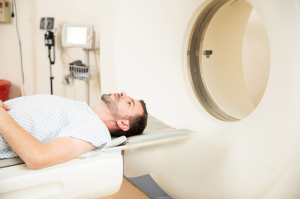por
Lauren Dubinsky, Senior Reporter | February 14, 2018

Researchers uncover what
they want to know
One in five patients show up for an imaging exam without any information about the test, according to a new study published in Radiology.
"Language barriers, perception that patients know what will occur, or just being too busy are all reasons," Dr. Jay K. Pahade, associate professor of radiology at the Yale School of Medicine, told HCB News.
He added that prior work has shown that ordering physicians don't have accurate knowledge of what a radiology exam entails, and therefore may not be the best source of information.



Ad Statistics
Times Displayed: 75267
Times Visited: 5317 MIT labs, experts in Multi-Vendor component level repair of: MRI Coils, RF amplifiers, Gradient Amplifiers Contrast Media Injectors. System repairs, sub-assembly repairs, component level repairs, refurbish/calibrate. info@mitlabsusa.com/+1 (305) 470-8013
In early 2015, Pahade and his team surveyed patients and their caregivers at three pediatric and three adult hospitals in the U.S. The questions asked about their preferences for receiving imaging test information before the exam and the type of information they found most useful.
Seventy-eight percent of the 1,438 respondents reported receiving information about their exams. The ordering physicians were their preferred source of exam-related information.
The respondents felt that information about exam preparation was the most important and the option of an alternative radiation-free exam was the least important.
Half of the respondents stated that they researched information themselves. Pahade believes that connecting patients with online resources is an easy and cost-effective way to inform them.
"I hope it will help raise awareness on what information patients actually want compared to what we as MDs/radiologists think they want," said Pahade. "I also hope that as radiology becomes more patient-centered that radiology sites will step in and fill this gap and become the main (and preferred) source of this information."

